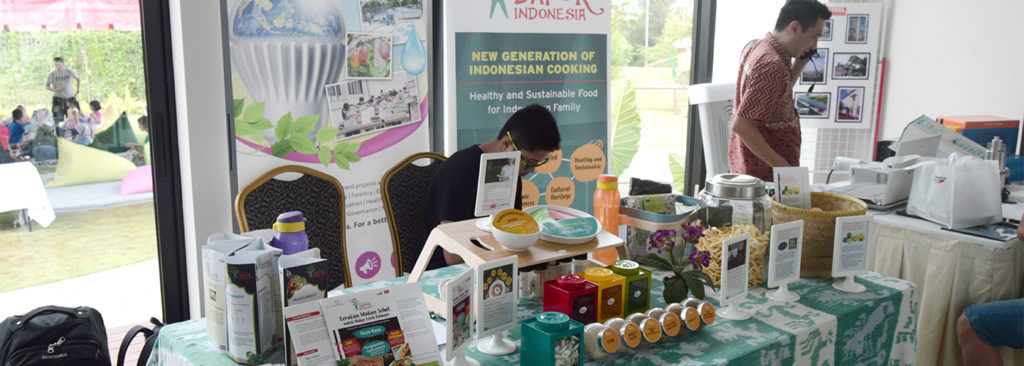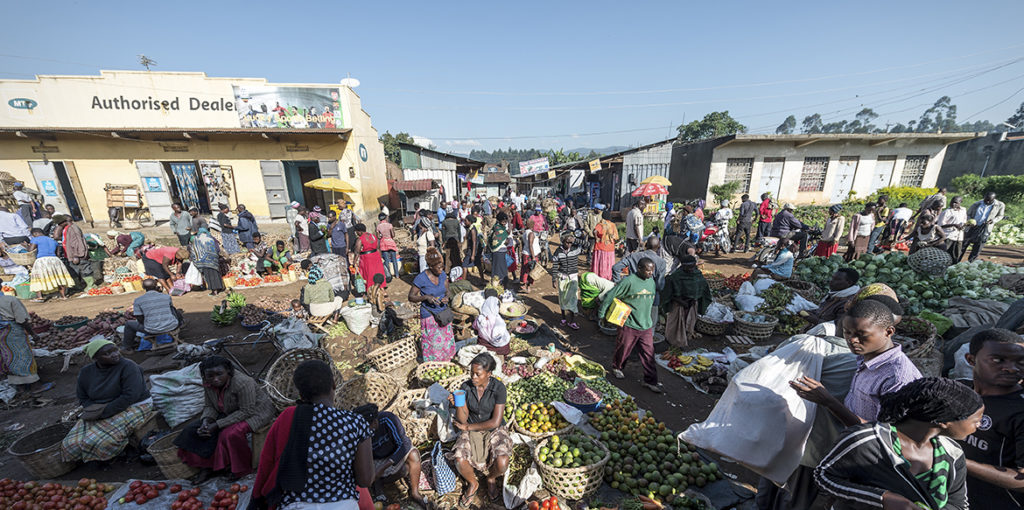New collaboration between Hivos and GAIN (Global Alliance for Improved Nutrition)
When you ask people what comes to mind when they think of “sustainable food”, they generally say things like health, nutrition or the environment. Sometimes they also mention affordability, safety and diversity. Surprisingly, taste is often missing from this list. In fact, sustainable food is perceived as being ‘flavorless, boring, bland’, or in short, not tasty.
Gastronomy – the practice or art of choosing, cooking, and eating good food – has the potential of changing this common perception and could be the entry point to support the shift towards sustainable food consumption.
This is why in 2016, CREM, together with the Dutch Federation of Exporters (FENEDEX) and the Dutch Federation of the Foods and Beverage Industries (FNLI) developed a new gastronomic campaign in order to stimulate sustainable food consumption in Indonesia called “New Generation of Indonesian Cooking (NGIC)” or “Generasi Baru Dapur Indonesia”.
Indonesia, renowned for its rich and diverse gastronomic heritage, is a potential place to apply this approach. New Generation for Indonesia Cooking is a combination of the country’s heritage and great taste experience. There are several gastronomic movements in a number of countries, spearheaded by chefs and food professionals, who promote the use of local products while reviving and adapting the country’s gastronomic heritage. Dutch Cuisine and New Nordic Cuisine are some examples.
Tasty and hip is the main driver of this concept, that was very positively received at a multi-stakeholder consultation forum held in Jakarta. The idea also incorporates other important aspects such as healthy and safe food, and aims to stimulate local, traditional or ethnically inspired cuisine and food products. Based on previous experiences in other countries, this unique type of gastronomic movement has a huge potential to influence consumer behavior.
GAIN and Hivos have commissioned CREM to prepare an NGIC pilot in Bandung, West Java. The objective is to explore to what extent NGIC could be an effective vehicle for a transition towards healthier and more sustainable food consumption among higher and lower urban middle income groups in Indonesia. The focus is on restaurant chains in shopping malls, food stalls and catering to businesses, government agencies, schools and hospitals.
WWF Netherlands and UNICEF Netherlands will support the project as advisors. Asian Management Consulting will conduct part of the work in Indonesia. In addition, Bas Cloo, manager and board member of the “Dutch Cuisine” initiative, will contribute in translating policy into practice.
NGIC is part of the Sustainable Diets for All programme, a 5-year strategic partnership between Hivos and its partner IIED with the Dutch Government to transform the food system and promote sustainable diets. Promoting dietary diversity through consumers’ choice and voice is one of the key strategies that the programme seeks to implement. In Bandung, Hivos and Riset Indie are organizing Food Change Labs activities. These are open space and safe platforms that allows people to co-create innovations that address the complex challenges of the city’s food system.


